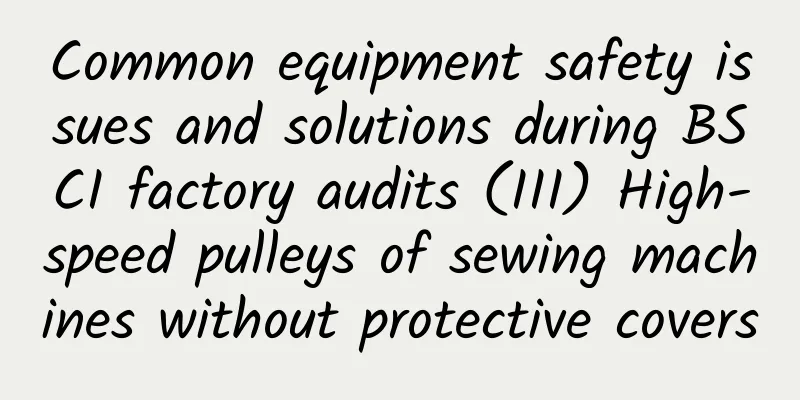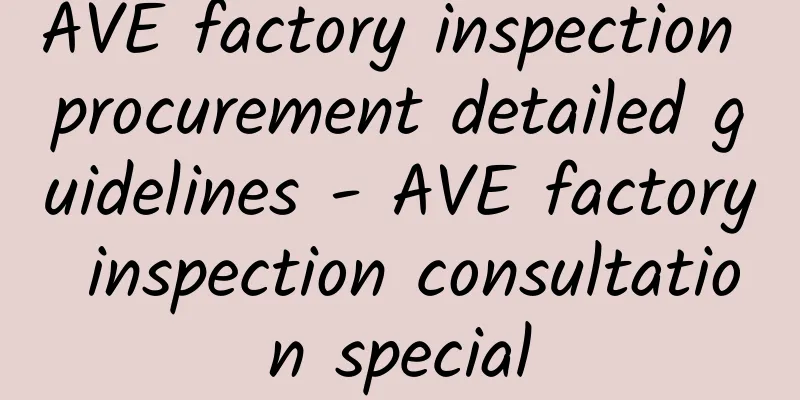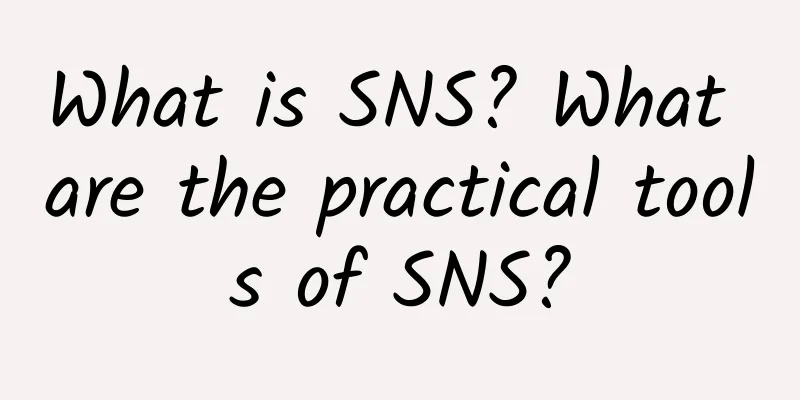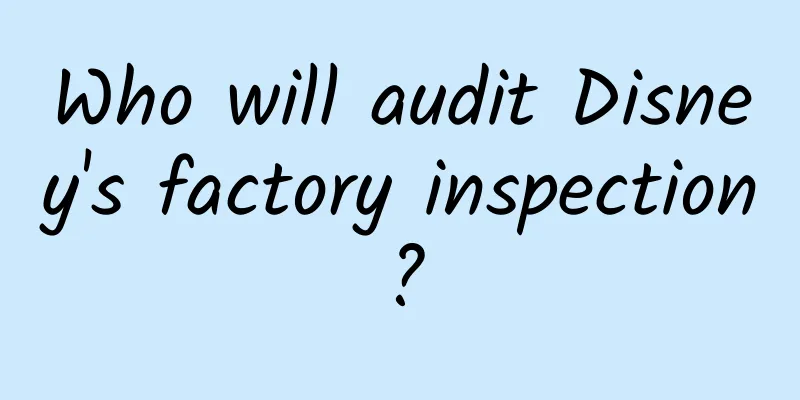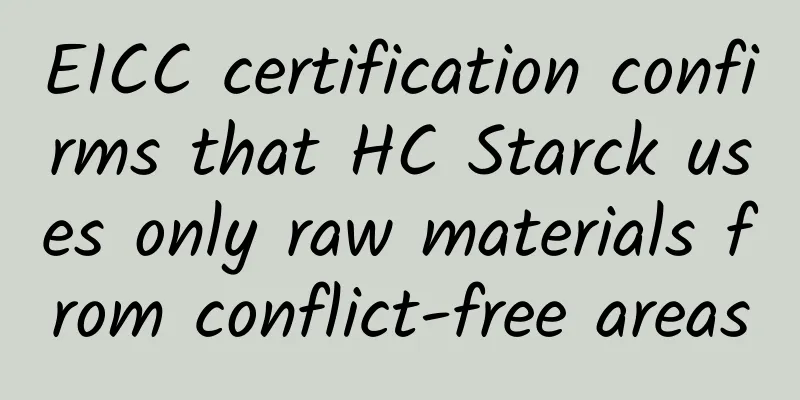ICTI Factory Audit Factory Status Terms and Definitions

|
From the moment a factory applies for ICTI factory inspection, it will be in different statuses on the ICTI official website. So, what are the specific statuses? What do these states mean? Let's take a look at them together: In Audit Progress - The factory is undergoing any necessary audit procedures and is not yet eligible to receive a certificate of compliance. Inactive - the factory is in its first ICP audit cycle and has not yet been issued an ICP compliance certificate. It still cannot meet the ICP after 3 audits. standards. Terminated - the validity of the compliance badge held by the factory has been terminated, or the new applicant factory has seriously violated the ICTI Code of Business Conduct. (COBP) and ICP processes and procedures, you must wait at least 6 months after the termination date before you can reapply. It may also refer to arrears of payment and/or Termination status due to failure to complete the ICP review within the specified time. Expired——The validity of the compliance badge held by the factory has expired. This status may also be due to the factory not having any compliance certification before or after the expiration of the certificate. Annual registration application. Class A——A-level certificate, the highest level of compliance badge, is issued to those who have been audited, have no serious violations, and have been transparently and publicly implemented. The working hours per week do not exceed 66 hours.
Factories where the weekly working hours do not exceed 60 hours. Class A Since [which year]——equivalent to Class A certificate, indicating that the factory has been working no more than 66 hours per week for the third year or more. Class B——B-level certificate, the second level of regular badges, is issued to those who have been audited, have no serious violations, and have transparently disclosed their actual Factories with weekly working hours of more than 66 but less than 72 hours Class C - Class C certificate, the third level of conventional badges, means that the factory has been audited, has no serious violations, and has transparently disclosed actual Factories with weekly working hours exceeding 72 hours are implementing continuous improvement plans to reduce working hours in order to obtain higher certification levels. On Probation - Observation period certificate, that is, the factory is under ICP supervision (3 audits within 1 year), ensuring that the factory is in the observation period Comply with ICP's Code of Business Conduct and commit to continuous improvement. Factories are usually found to have serious violations and opacity during audits. Was placed under observation. What do these states mean? Let's take a look at them together: In Audit Progress - The factory is undergoing any necessary audit procedures and is not yet eligible to receive a certificate of compliance. Inactive - the factory is in its first ICP audit cycle and has not yet been issued an ICP compliance certificate. It still cannot meet the ICP after 3 audits. standards. Terminated - the validity of the compliance badge held by the factory has been terminated, or the new applicant factory has seriously violated the ICTI Code of Business Conduct. (COBP) and ICP processes and procedures, you must wait at least 6 months after the termination date before you can reapply. It may also refer to arrears of payment and/or Termination status due to failure to complete the ICP review within the specified time. Expired——The validity of the compliance badge held by the factory has expired. This status may also be due to the factory not having any compliance certification before or after the expiration of the certificate. Annual registration application. Class A——A-level certificate, the highest level of compliance badge, is issued to those who have been audited, have no serious violations, and have been transparently and publicly implemented. The working hours per week do not exceed 66 hours.
Factories where the weekly working hours do not exceed 60 hours. Class A Since [which year]——equivalent to Class A certificate, indicating that the factory has been working no more than 66 hours per week for the third year or more. Class B——B-level certificate, the second level of regular badges, is issued to those who have been audited, have no serious violations, and have transparently disclosed their actual Factories with weekly working hours of more than 66 but less than 72 hours Class C - Class C certificate, the third level of conventional badges, means that the factory has been audited, has no serious violations, and has transparently disclosed actual Factories with weekly working hours exceeding 72 hours are implementing continuous improvement plans to reduce working hours in order to obtain higher certification levels. On Probation - Observation period certificate, that is, the factory is under ICP supervision (3 audits within 1 year), ensuring that the factory is in the observation period Comply with ICP's Code of Business Conduct and commit to continuous improvement. Factories are usually found to have serious violations and opacity during audits. Was placed under observation. |
<<: ALDI factory inspection requirements——BSCI
>>: Detailed version of holiday and anniversary leave policy
Recommend
How is Kerry E-Commerce? What services does Kerry E-Commerce provide?
How about Kerry E-Commerce? Kerry E-Commerce Co.,...
Sedex certification audit process
1. Any individual who wishes to become a member ma...
Walmart's new policy has led to strikes in stores across the country to protest against the comprehensive working hours system. What happened?
On May 17, 2016, real news came out from Walmart ...
What are the relative disadvantages of eBay? What are the contents?
As a huge e-commerce platform, what are the relat...
Statistics of eBay European official website UK site
eBay's official European website covers many ...
Learn more! What are the top ten social e-commerce platforms?
2018 is known as the first year of social e-comme...
How is Xiangxinli Intellectual Property? What services does Xiangxinli Intellectual Property provide?
Xiangxinli Intellectual Property Co., Ltd. was es...
Anti-terrorism Ann Taylor factory audit documents
Anti-terrorism AnnTaylor factory audit documents ...
What is Flickr? What are the functions and services of Flickr?
Flickr is a photo storage and video hosting websi...
Carbon tariffs arrive early, not a tiger but a lucky cat
1. EU “Carbon Tariff” On March 15, 2022, the Euro...
How is Chitai Logistics? What services does Chitai Logistics provide?
How about Chitai Logistics? Shenzhen Chitai Logis...
Illegal and irregular acts such as counterfeiting and overdue use of certificates will be severely punished
The well-known ISO9001 certification indicates th...
WRAP factory audit about factory regulations document template
************* Co., Ltd. factory regulations In or...
ALDI factory inspection requirements——BSCI
As a member of BSCI, all European sales offices o...
ACC Processing Plant Wastewater Requirements
The sewage water quality concentration record mus...

